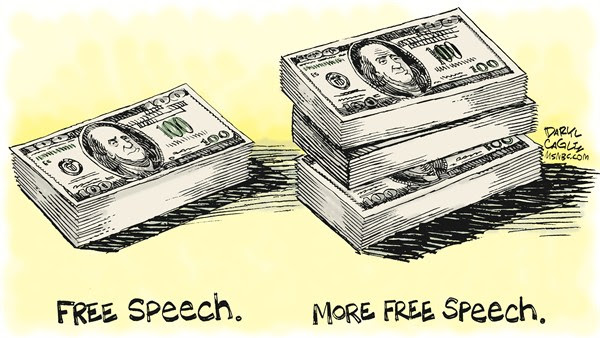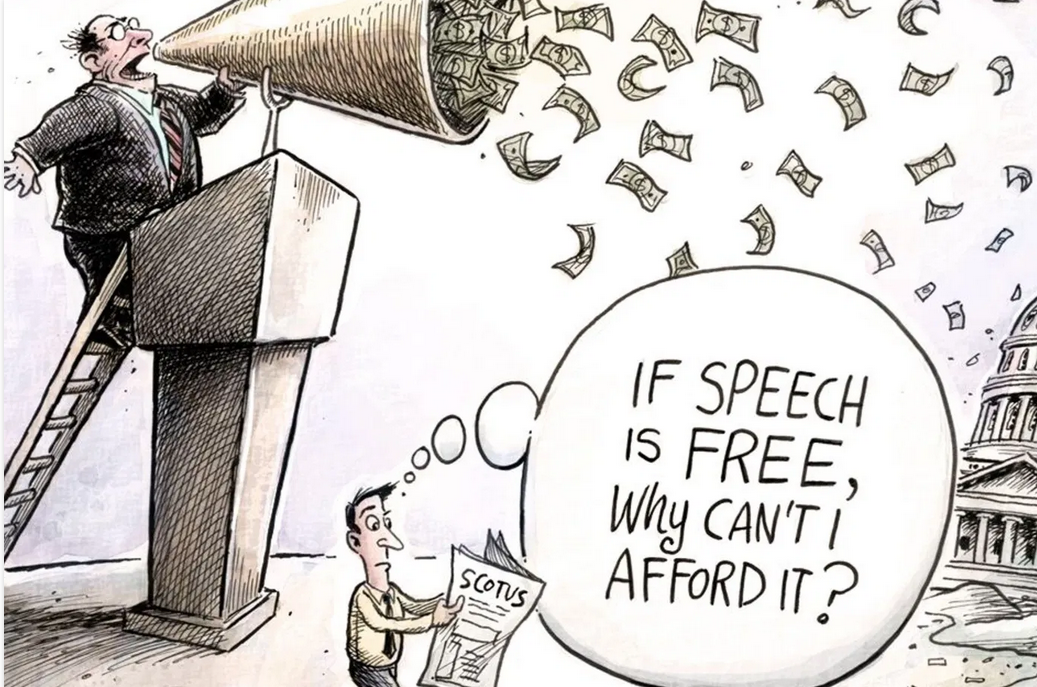Progressive sweep 2020 races

Following Contra Costa County’s semi-official Election Night final results (which showed RPA-backed candidates winning by margins of 13 to 20 percent), BK Williams, Chair of the Richmond Progressive Alliance, offered this statement:
The Richmond Progressive Alliance acknowledges and thanks all the candidates who ran for City Council. Although every vote must still be counted, we extend our warm congratulations to Melvin Willis, Gayle McLaughlin and Claudia Jimenez, who each are on track to winning a majority of the votes.
These electoral victories belong to everyone who shares and collectively worked towards a progressive vision for our City -- a healthy, inclusive Richmond where everyone thrives. We express our heartfelt thanks to the hundreds of volunteers who donated their time and resources to help elect these corporate-free candidates to office. Again, we showed that grassroots, people-powered movements can overcome great odds.
Read moreFollow the Money - An Election 2020 Report
- Overcoming Big Money and racist political supression in Richmond
- Mayor Butt introduces Jim Crow proposal to limit who can run for City Council
- "Big money" political spending tops $300k in Richmond
- Women in Politics endorses Claudia Jimenez for District 6
- Vote early and safely this year
- Make this election grassroots and people powered!
- Progressive voter guide 2020
Overcoming Big Money and racist political suppression in Richmond

This week we saw two things happen in Richmond which show just how unfair elections can be in this country; and how ordinary people, especially low income folks and people of color, have the political deck stacked against them.
First, we saw campaign finance reports showing that Big Money is pouring into Richmond elections to the tune of hundreds of thousands of dollars. Three "corporate candidates" -- Eleanor Thompson, Ahmad Anderson, and Vinay Pimple -- are now collectively benefiting from $300,000 from an alliance of police and public safety unions, major development interests, and polluters. While these three interests have always been a force in Richmond elections, we haven't seen them coordinate so closely before. And now that we have switched to smaller district elections, Big Money can speak even louder.
Second, this week Mayor Butt Tom Butt put forward a proposal (to be considered at Tuesday's City Council meeting) to make it harder for renters to run for office in Richmond. Like all Jim Crow policies, Butt's proposal seems logical and race-neutral on the surface, but would disproportionately impact Black and low income people. He's doing it as part of a political attack against candidates Melvin Willis and Najari Smith, the only two young, black men running for City Council this year. It's bad enough that our Mayor regularly uses his positional power to go after political rivals; it's orders of magnitude worse when he attacks them by proposing racist policies that would supress the political representation of entire groups of people.
But despite these two developments, I also saw things this week that gave me hope.
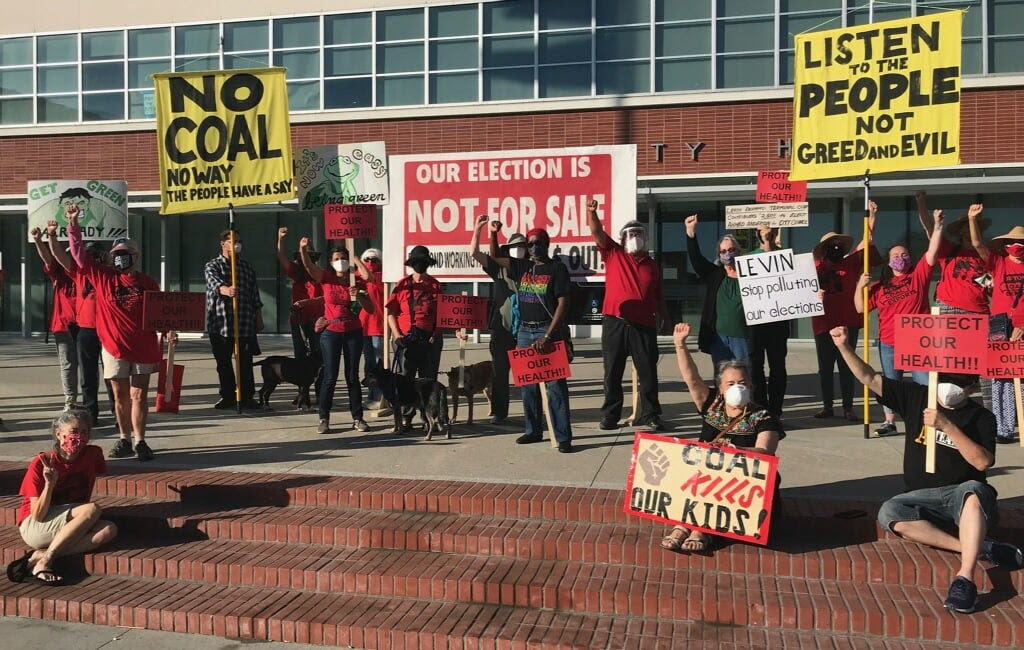
The first was a rally on Tuesday protesting how Levin Terminal is trying to pollute our elections. Levin handles about one quarter of West Coast coal exports to Asia, and in doing so creates toxic dust that poses health risks, especially to kids. Richmond passed an ordinance earlier this year giving Levin three years to phase out of coal and into other goods, but the company seems to be more interested in putting sympathetic politicians onto the City Council, in hopes of undoing this ordinance. It was inspiring to see these grassroots activists, who worked for years to pass the coal ordinance, bringing their smarts and their passion to our elections.
My second source of inspiration came earlier today, when I gathered with a group of people -- all volunteers -- to canvass for Claudia Jimenez who is running for City Council in District 6. That gave me hope because I believe grassroots power, united by a vision of collective well-being, can counter the power of powerful special interests, even when those special interests band together like they are doing this election cycle.

I believe grassroots power grows with every struggle. Early this year, we won the coal ordinance. Then as the pandemic unfolded, we got an emergency moratorium on evictions. In past years, progressives fought to pass a $15 minimum wage. We ended police check-points intended to "catch" undocumented residents. Forced Chevron to pay an additional $7.5 million in taxes per year for 15 years. Created and funded the Office of Neighborhood Safety, which helped reduce homicides 75%. Prevented a giant casino from being built at Pt. Molate, and more. None of these things were particularly popular with corporate polluters, big landlords, or the police union. But when people are united, we can win.
-- Michelle Chan, Editor
Mayor Butt introduces Jim Crow proposal to limit who can run for City Council
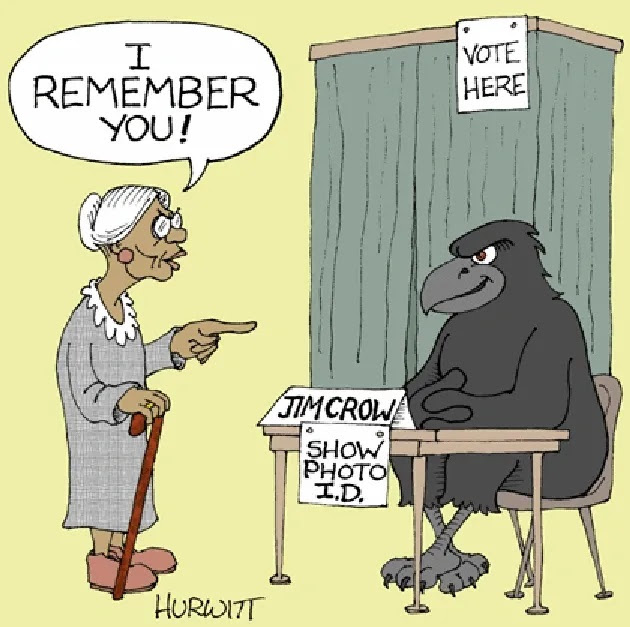
“Jim Crow” laws refer to regulations -- largely in the American South before 1965 -- that were created to enforce racial segregation and to politically and economically disenfranchise Black people.
Examples of Jim Crow laws include poll taxes and literacy tests that were always made to sound reasonable on the surface. White supremacists “logically” argued that only those who could demonstrate a financial tie to a community (poll tax), or a certain level of education (literacy test) should be able to vote. And although these laws never specifically mentioned race, they had the effect of drastically suppressing voter turnout from Black communities.
But racist Jim Crow laws are not a thing of the past. Just this week, right here in Richmond, Mayor Tom Butt just proposed a policy that would make it harder for renters to run for office in Richmond. Butt’s rationale is that candidates should not be able to run in a district if they don’t live there; and because renters move around more than homeowners, they need special proof of residency from their landlords.
Mayor Butt’s proposal, if it passes, would mean that some renters will need a signed affidavit from their landlord to be allowed to run for City Council in Richmond. On top of that, anytime a renter runs for office, there will be an automatic investigation of their landlord by the City Attorney, making it even less likely a landlord will cooperate. This sets up a major barrier for who can run for office. In the tradition of Jim Crow, Butt’s proposal never mentions race specifically, but it clearly discriminates against people of color and low income folks, who are more likely to be renters, and would disenfranchise Black people.
A politically motivated attack against Melvin Willis and Najari Smith
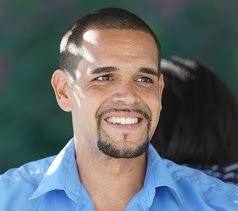
To make matters worse, Butt’s proposal is part of a politically motivated attack against Melvin Willis and Najari Smith, two Richmond City Council candidates that Butt has been campaigning against. Melvin and Najari are both long-time renters in Richmond, and are also the only two young, black men running for City Council this year.
Before even bringing it to the City Council and the public, Butt shared his proposal with the fire department union, who included it in a bogus complaint letter they sent to the City Clerk and District Attorney on October 6th, asking for a criminal investigation against Najari and Melvin.
Butt also distributed the firefighter’s bogus complaint letter to thousands of Richmond residents via his Eforum one day later on October 7th to try to smear Melvin and Najari’s names. (Ironically, the letter he promoted was penned by Sutton Law firm, which Butt himself characterized as “not a real law firm; it specializes in fronting for corporations and organizations who don’t want to be identified in political campaigns.”) The firefighter’s union and Butt have teamed up to try to 1) criminalize two young black men who have dedicated their lives to improving this community and 2) change the law to make it hard for people like them (renters, people of color, low-income families) to hold office in the future.
How to help
We need your help to stop him this Tuesday (10/20) at the Richmond City Council meeting. Here are three ways:
NOW - Send an email to the Mayor and all City Councilmembers (Nat Bates, Ben Choi, Demnuls Johnson, Eduardo Martinez, Jael Myrick, and Melvin Willis) telling them to vote no on Item I-1 this Tuesday, and to denounce Mayor Butt’s politically motivated attempt to disenfranchise Richmond renters.
ANYTIME BEFORE TUESDAY 10/20 AT 1 PM - To have your message included as part of public comment for the City Council meeting, send emails to the City Clerk. You can send the same email twice with two different subject lines (you have to use these subject lines):
- Public Comments - Agenda item I-1. ADOPT a City Council District Residency Policy
- Public Comments – Open Forum
ON TUESDAY 10/20 AT 6:30 PM - Join the City Council meeting online to make a comment.
- Join via this link and use Passcode: ccmeeting
- When Public Comment is asked for, click on the "Participants" button at the bottom of your screen and select the “Raise Your Hand” button to request to speak. Speakers will be called upon in the order they select the “Raise Your Hand” feature. When called upon, you will be unmuted. After the allotted time, you will then be re-muted.
- Plan to speak to item I-1 towards the end of the meeting.
- If Mayor Butt removes Item I-1 during Agenda Review, then you can speak during Open Forum at the start of the meeting.
- Because the City cannot guarantee that its network and/or the site will be uninterrupted, you are strongly encouraged to submit your comments via email in advance of the meeting as well.
"Big money" political spending tops $300k in Richmond
Thompson, Anderson & Pimple are the “corporate candidates” who stand to benefit
In the last several weeks, campaign finance reports have revealed a pattern: Thompson, Anderson and Pimple are emerging as the “corporate candidates” and are also the top pick for Richmond’s powerful police union.
As of this week, corporations, developers, safety unions, and construction trades collectively poured over $300,000 into these three candidates. Here’s how it’s breaking down:
Thompson benefiting most from Big Money
Eleanor Thompson, who is running in District 1, has not raised a particularly large amount of money -- just under $20,000. But a staggering 89 percent of her campaign funds are from big donors like developers, corporations, and safety and construction unions. Only a handful of “ordinary” Richmond residents have made donations to help her campaign, an indication that she does not have a lot of grassroots support.
However, the real money behind Thompson is Richmond Progress, which is the big police-controlled Political Action Committee. This PAC has amassed over $122,000 to “independently” campaign for their chosen candidates. And they have spent the vast majority of their monies -- a whopping $91,000 -- helping to elect Thompson.
Thompson is running against current Councilmember Melvin Willis, who grew up in District 1 and attended Chavez Elementary school. He is not taking any corporate donations. Willis is known as a staunch advocate for low-income people and was also an early leader calling for police funding to be cut by 20 percent. He believes that medics and social workers can more effectively, safely -- and cheaply -- respond to non-criminal calls such as mental health situations, homelessness, truancy, etc. The money saved can then be used to increase funding for services such as youth programs that create more stability and opportunity, and improve public safety in the long-term. Naturally, the police union opposes this idea, as well as calls for more police accountability, which are gaining more traction in the wake of the killing of George Floyd and others. The police are literally putting their money on Thompson, in hopes of securing more funding, and potentially less accountability.
Anderson accepting the most Big Money
Ahmad Anderson, who is running in District 5, has taken the most direct money -- over $43,000 -- from police, developer and construction interests. Several of them have given $2500, “maxing out” their donations to his campaign: including the police union, Levin Terminals and various developers and construction unions (such as Richmond Development Corporation, the California Real Estate lobby, the state landlord lobby, and IBEW).
Richmond Progress, which is the big police-controlled Political Action Committee, is also backing Anderson. As of October 12, they spent over $35,000 on pro-Anderson literature and mailers.
Anderson is running against former Richmond mayor Gayle McLaughlin, who has pledged to take no corporate money. McLaughlin is considered a very strong environmental candidate, having led on several climate and environmental initiatives during her tenure as Mayor (for example, on her watch Richmond received an award in 2010 for installing the highest amount of solar per capita in any city in the US). Companies like Levin Terminals and SunCal would certainly like to ensure that Anderson gets the Council seat, so they can overturn Richmond’s coal ordinance and lock in the luxury housing development in Pt. Molate.
Pimple coming in second in taking big cash
Pimple comes in second when it comes to directly accepting Big Money, having taken $26,000 so far from these interests. He has taken the maximum political donation from the state landlord association, and various construction trades; the police union also reports maxing out their donation to him, as have the firefighters (who stick with the police union on political matters). He has also taken sizeable contributions ($1000) from developers such as SunCal (Pt. Molate) and Eastshore Properties.
On top of that, Richmond Progress has so far spent over $21,000 on their own efforts to boost Pimple’s campaign.
Pimple is running against community organizer Claudia Jimenez, who has pledged to take no money from corporations and big developers. Jimenez, who is the mother of two children in Richmond public schools, is running on a record of protecting our immigrant community and promoting inclusive development for Richmond. She was one of the original signatories to the rent control ordinance, and believes that housing is a human right -- which means that landlords and for-profit developers are eager to keep her from getting elected.
Women in Politics endorses Claudia Jimenez for District 6

So much hangs on Richmond City Council District Elections November 3 - especially whether or not the council's membership, where no women currently serve, resembles Richmond. Women in Politics (WIP) looked for good women to remedy this omission. We found Claudia Jimenez, city council candidate from District 6. We invite you, too, to volunteer to help elect Claudia. It's a small sacrifice for just a short while to gain a council member who will make Richmond proud for years.
So from where did Women in Politics come? Some of us who share friendships, activism, and/or political views, independently found ourselves horrified by the absence of women from the Richmond City Council after the last election. We eventually networked our way into meeting together monthly to discuss this absence and how to fix it.
Just to be sure we truly were on the same page, we agreed on a mission statement. Here’s what we decided, including our pledge
...to support political leaders, specifically city council candidate(s) and office holders who share our core values. We’re not looking for just any woman, but the right candidate for the job.
We next decided on the values we would seek in women to endorse for public office. We arrived at 37, all the way from “non-racist” to “Takes no corporate donations,” as follows: https://womeninpolitics.net/our-values
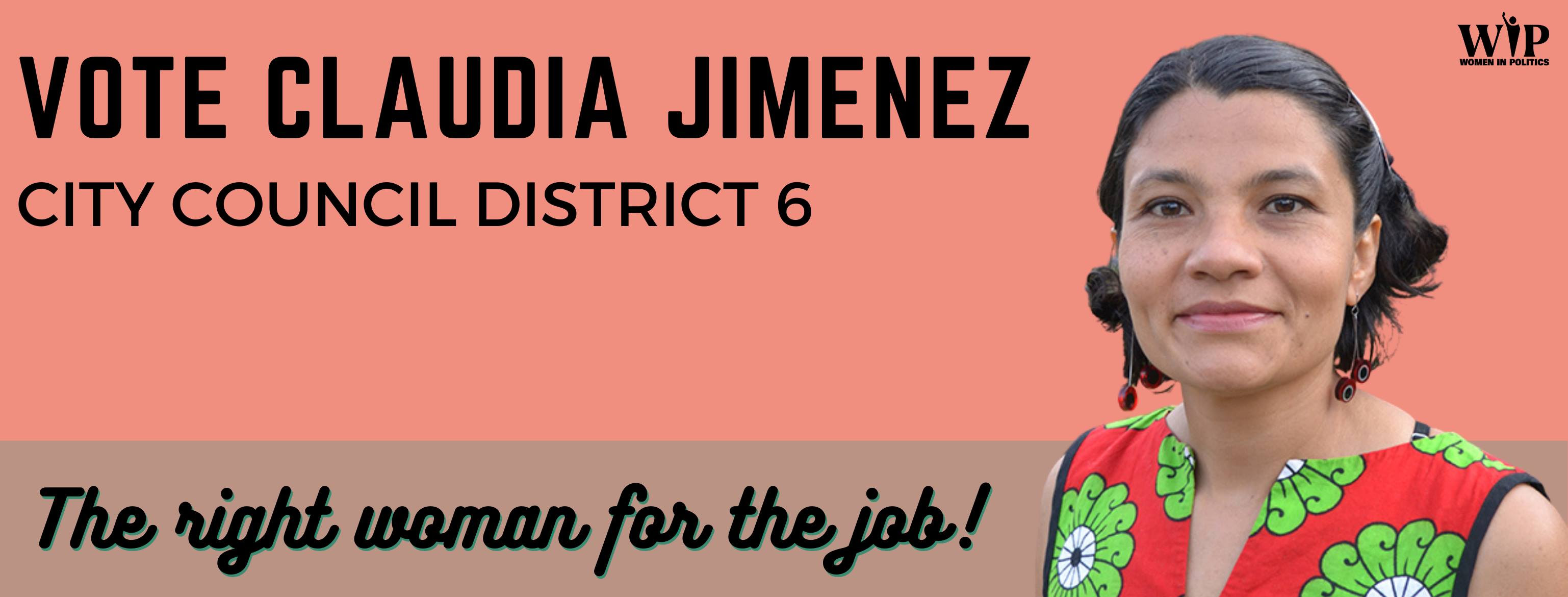
The interview committee we formed questioned Claudia Jimenez based on our collectively adopted values and reported back to the full membership the following recommendation:
Our consensus is that Claudia is a viable candidate with a proven track record of building coalitions, initiating and completing projects, and of working in collaboration with the groups and communities she serves. She shares the stated values of WIP in general, and specifically she shares the belief that progressive women bring an insight and a capacity less frequently observed in mainstream male elected officials.
Having found a candidate to endorse, we set about helping elect Claudia, hosting discussion forums, organizing a car caravan and other activities. We anticipate Claudia's victory in November. We will reconvene afterwards to evaluate our efforts to balance representation on the city council for a better, stronger Richmond. We will, among other questions, consider whether or not to continue as a group. We welcome others to join us in evaluating if WIP can or should continue to support women in efforts to run for political office and, in general, to lead local government. If you are interested, message us through our Facebook page.
-- Kathleen Wimer, Women in Politics
Vote early and safely this year!
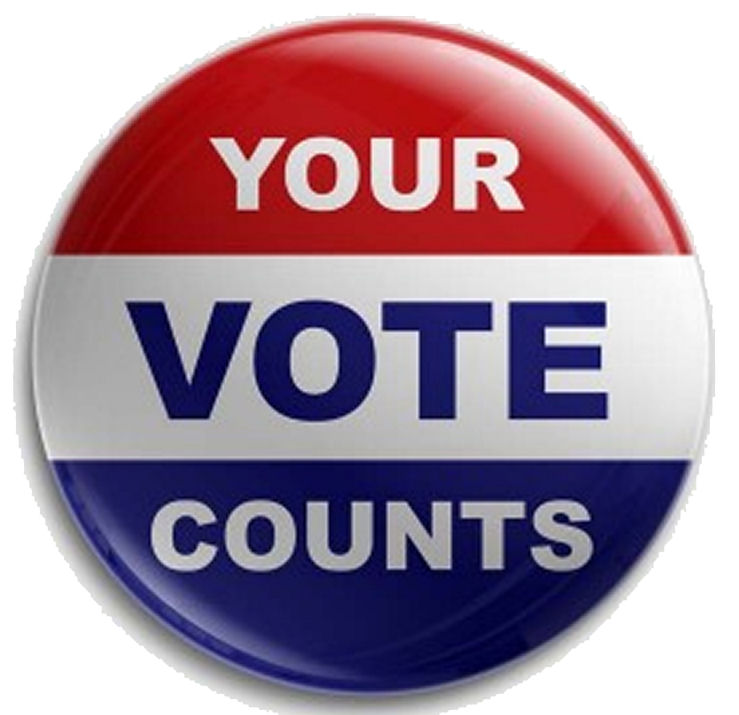
This year, all registered voters in California will be sent a vote-by-mail ballot with a prepaid postage return envelope for the November 3 election. You may have already received yours. Here are some important details on how to vote safely this year:
How to vote
- Vote by mail (recommended): Mark your ballot, then place it in the postage-paid return envelope. Sign the envelope and mail it back, early if you can. It must be postmarked on or before Election Day and received by November 20, 2020.
- Vote by dropping off your ballot (recommended): Instead of mailing back your ballot, you can also drop it off at one of 37 secure outdoor drop boxes in Contra Costa. Drop boxes are open 24/7 and will be in use from October 5 until 8pm on Election Day (November 3). In Richmond, there is a drop box in front of Richmond City Hall (450 Civic Center Plaza).
- Vote in person: Polling places will open on November 3; to locate your polling place, look on the back of the Voter Information Guide that will be mailed to you. (The location may be different than in previous years.) If you vote in person, bring a mask, hand sanitizer, and be prepared to socially distance. There may be long lines, so consider going early.
Am I registered to vote?
- The last day to register to vote is October 19. Check to see if you are registered to vote by visiting VoterStatus.sos.ca.gov. You can also confirm where you are registered, adjust your political party preference, language preference, etc.
- After October 19, you can still register and vote in person (using Conditional Voter Registration) on Election Day, November 3, at polling places.
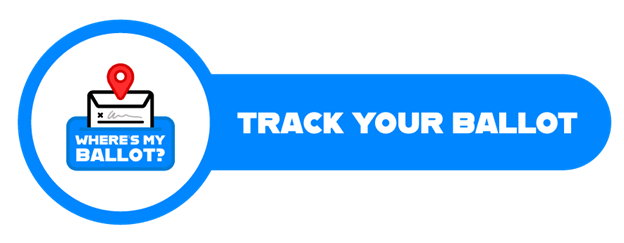 How do I know my vote is being counted?
How do I know my vote is being counted?
- Wheresmyballot.sos.ca.gov is California’s official tracking tool to find out if your ballot has been mailed, received and counted. You need to sign up for this service; it only takes a few minutes.
Election results
- Remember: voters are used to getting results on Election night, but the results of the election actually may not be clear until weeks after November 3, after all mail-in-ballots have been counted. Also many more Democrats are likely to vote by mail, so early predictions of “who won” the Presidential election, for example, may be different than the final results. With the combination of delayed election results, inaccurate early predictions, and various misinformation campaigns, some folks might get the (mistaken) idea that the elections are not legitimate. Please help raise awareness among your friends and family!
Make this election grassroots and people-powered!

Looking at the campaign fundraising records, it seems like some candidates are bringing in the bucks from monied interests. But since Team Richmond candidates -- Melvin Willis, Claudia Jimenez and Gayle McLaughlin -- accept no corporate campaign donations, the only way to counter the power of big money in politics is through volunteers and small grassroots donations.
- Phone banking: Team Richmond is hosting three days of phone banking per week: Mondays and Thursdays from 5pm to 8pm and Saturdays from 10am to 1pm. Please contact Emily at [email protected] to sign up for your shift(s) today!
- Socially distanced canvassing: We are also starting to do socially-distanced door-to-door canvassing. It's fun, safe, and folks actually seem to appreciate getting information. To canvass for Claudia in District 6, North and East, sign up here. To canvass for Melvin in District 1, central Richmond, sign up here.
COVID-19: A moment of truth for public transit
Transportation is a human right.
Whether you choose to drive a car, ride a bike or take the bus, your ability to safely get to school, work or the doctor is right up there with food, clothing and shelter as one of the basic needs to live a healthy and fulfilling life. The current COVID-19 crisis is testing this human right by putting our community’s safety and mobility at risk.
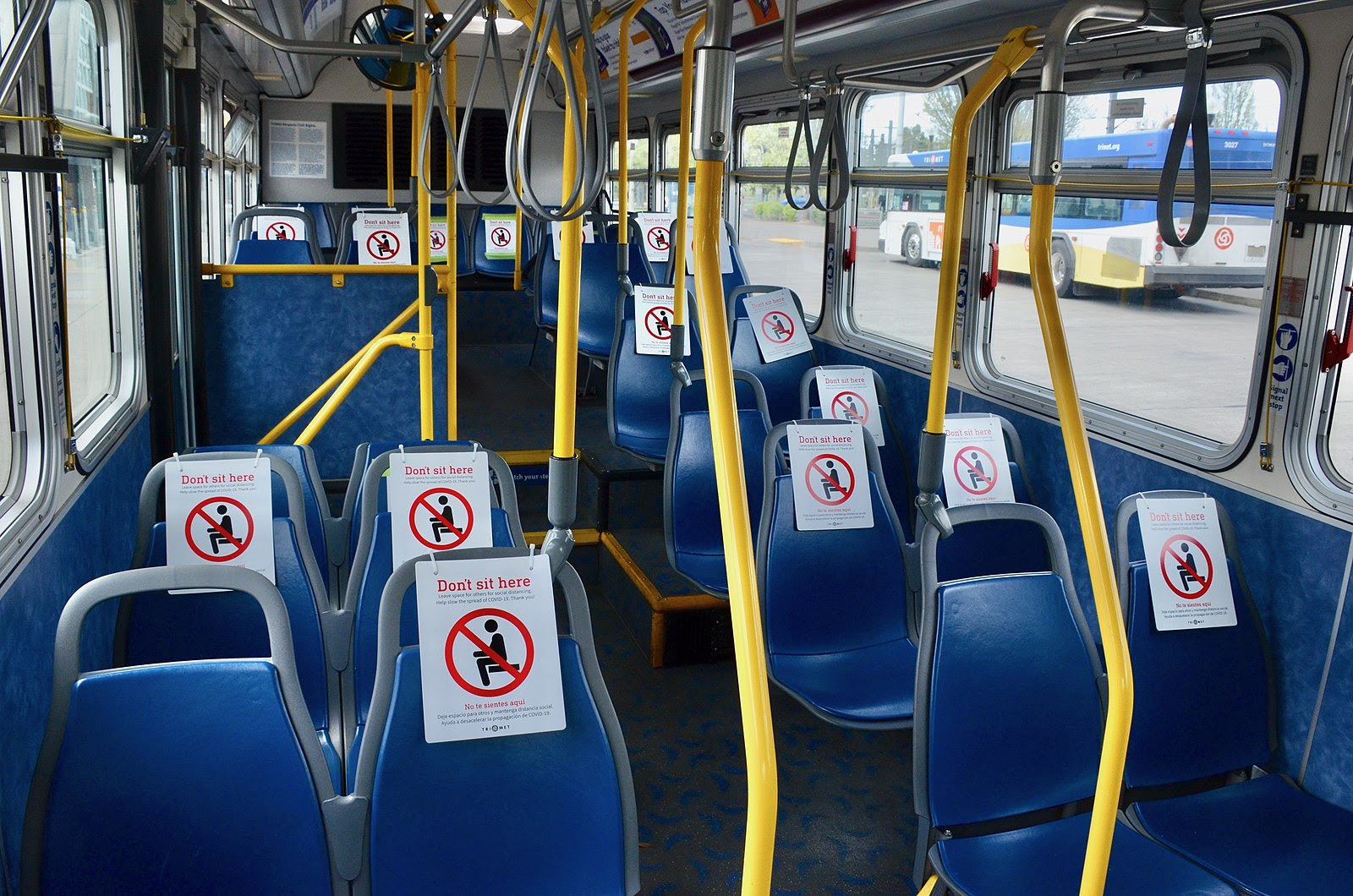
Public transit agencies have had their resources depleted by falling ridership. BART had only recovered to 16% of normal ridership by early August, and government relief funds will only cover 40% of the losses, as the Daily Californian reported.
Meanwhile, AC Transit is considering making up for its losses by combining lines. That has serious equity consequences. Citing research on AC Transit’s cuts during the recession of 2009-2010, Bloomberg reported:
“Out of 477 regular bus riders who were surveyed, nearly one quarter said that they did not go to work as often or at all following the cuts. ‘Service changes affect me because it takes me longer to get to work,’ one respondent said. ‘And if I come 30 minutes late to work, I don’t get paid for that half hour, so I’m losing money.’”
Unsafe conditions on transit also pose a risk to the workers who drive and maintain our buses, and the essential workers who rely upon them.
In this issue of The Activist, you’ll see how you can take action through a new campaign to make public transportation safe for workers and for the working-class riders who depend on it. That’s one of the top priorities of former Richmond City Council member Jovanka Beckles, who is running for the board of AC Transit, and spoke with The Activist for this issue.
You’ll learn about Beckles’ push to move AC Transit, which has suspended fares during COVID-19, to a permanently fare-free model. It’s more than an economic justice issue - it’s a racial justice issue, as black and brown people are disproportionately cited for fare evasion. And cities such as Kansas City, Mo. are showing the way.
You’ll read about some other exciting new features on the Richmond transportation landscape, including free electric vehicle chargers and a bikeshare system that will open soon. Done right, both initiatives could help improve transportation equity in Richmond by giving working-class Richmond residents better access to clean and cost-effective options for getting around.
With your help, we can ensure that we move beyond COVID-19 with cleaner, safer and more equitable transportation for all.
2020 Endorsements
RPA 2020 Voter Guide
Richmond City Council Endorsements
District 1: Melvin Willis
District 5: Gayle McLaughlin
District 6: Claudia Jimenez
WCCUSD Board Endorsements
Area 1: Jamela Smith-Folds
Area 2: Otheree Christian
Area 4: Demetrio Gonzales-Hoy
Area 5: Leslie Reckler
Other Endorsements for Local Races
AC Transit Board Ward 1: Jovanka Beckles
Contra Costa Board of Education Area 1: Consuelo Lara
East Bay Regional Parks District Ward 1: Norman La Force
City of Richmond Ballot Initiatives
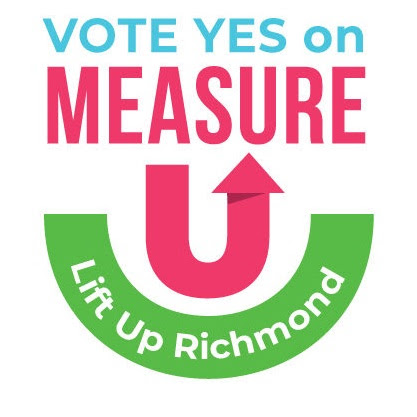
Measure U: Vote Yes
If this passes, Richmond will increase business tax revenue by calculating tax based on gross receipts rather than the number of people on payroll. This would ensure that large industrial facilities that don’t employ many people and rely heavily on city services pay their fair share.
Contra Costa County Ballot Initiatives
Measure X: Vote Yes
This would impose a half-cent sales tax across Contra Costa for 20 years, raising about $81 million per year for public health, emergency response and safety net programs that are more critical than ever due to COVID-19. Sales taxes are not progressive, but this was the best the Board of Supervisors would do to support these vital services. (They at least exempted food sales from the final version.) Vote yes, with reservations, on Measure X.
State Ballot Initiatives
Proposition 14: Stem Cell Research - No recommendation
This measure would authorize $5.5 billion in bonds for stem cell research. The California Institute of Regenerative Medicine, created in 2004 when the Bush administration refused to provide federal funds for stem cell research, has yielded valuable cutting-edge research on cancer and other diseases. However, with federal restrictions now lifted, it’s not clear that California taxpayers should continue to bear that cost.
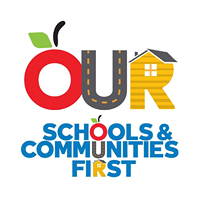 Proposition 15: Schools & Communities First - Vote Yes
Proposition 15: Schools & Communities First - Vote Yes
Prop 15 is one of the most important measures on the ballot this year. By closing corporate loopholes in Prop 13, it will ensure that wealthy corporations such as Chevron finally pay property tax based on the value of their property, instead of having their taxes frozen in time at 1970’s levels. Protections for homes, small businesses and farms would remain in place. This simple change would yield an estimated $86 million for Contra Costa County, $21 million for the city of Richmond and $19 million for WCCUSD.
Proposition 16: Affirmative Action - Vote Yes
By repealing 1996’s Proposition 209, this measure would once again allow the use of affirmative action in state functions. That’s an important step toward overcoming gender and racial inequities at state institutions such as the UC system.
Proposition 17: Voting Rights for Parolees - Vote Yes
This measure would extend voting rights to people who are on parole for felony convictions, rather than making them wait until they complete parole. Nineteen other states already allow people to vote while on parole for felonies. California should too.
Proposition 18: Voting Rights for 17 Year Olds - Vote Yes
This measure would allow 17-year-olds who will turn 18 by the next general election to vote in primaries and special elections. This could only make it easier to engage young voters. Vote yes and help California join nearly 20 other states that already offer this privilege.
Proposition 19: Property Taxes for Seniors - Vote Yes
This measure would tweak Prop 13 to allow homeowners who are disabled or 55+ years old to carry the taxable value of their home to a new home. It would also close a loophole that allows people to keep the taxable value of vacation homes, rental properties and homes worth more than $1 million that they inherit. It doesn't go as far as is needed to overhaul Prop 13, but on balance, the measure is expected to increase tax revenue and make property tax rules work better for seniors, so we support it.
Proposition 20: Increased Sentencing - Vote No
This typical “tough on crime” measure would increase penalties for an array of offenses, swelling prison populations at a time when COVID-19 makes that a worse idea than ever. The measure is funded by police interests and supermarket chains such as Albertsons and Safeway, which see it as a way to fight shoplifting. Fight the prison-industrial complex and vote no.

Proposition 21: Rent Control - Vote Yes
By replacing the Costa-Hawkins Rental Housing Act of 1995, this measure would allow rent control on buildings that were first occupied after 1995, as long as they have been occupied for more than 15 years. Vote yes to lift an unfair state restriction on the power of local governments and allow progressive municipalities such as Richmond to expand rent control.
Proposition 22: Gig Economy - Vote No
California lawmakers tried to help gig economy workers by passing AB 5 in 2019, but Uber, Lyft and DoorDash fought the law tooth and nail, arguing that making drivers employees would prevent them from offering flexible work. They’re planning to spend $100 million to pass Prop 22 and that must be rejected on principle. Corporations should not be allowed to spend unlimited sums of money to overturn democratically enacted laws. That is not how democracy works.
Proposition 23: Dialysis Regulations - Vote Yes
This measure would impose new regulations on dialysis clinics, such as requiring a doctor on site and requiring consent from state health regulators before a clinic can be closed. It’s backed by SEIU, which has worked for years to organize workers at the two largest dialysis providers, DaVita and Fresenius, and says that workers support the changes.
Proposition 24: Online Privacy - Vote No
This measure would tweak the California Consumer Privacy Act (CCPA) with the goal of strengthening online privacy. Privacy advocates are divided, and ultimately this just isn’t a good use of the ballot initiative process. Data privacy is a complex technical issue that should be handled through a legislative body with committee hearings and testimony from experts, or through rulemaking by expert regulators -- not through a simple up-or-down vote by the public.
Proposition 25: Ending Cash Bail - No recommendation
Voting yes on Prop 25 would uphold SB 10, a 2019 law that replaced cash bail with a risk assessment for people awaiting trial. Democrats mostly favored the bill and Republicans mostly opposed it, but progressive criminal justice advocates were split on the final version because of concerns about racial bias in risk assessments. Cash bail is deeply unjust and it needs to end, but we aren’t confident that voting yes on Prop 25 to keep SB 10 is the right solution.
TONIGHT: Save the Library! Reimagine Public Safety!
Suggested talking points
- Urge the Council to reallocate funding from the police budget to prevent the city from reducing or closing services, especially the Richmond Public Library.
- Call for a task force to be created, with Black youth and people impacted by policing, to develop a plan to re-imagine public safety in the community. For a comment letter template, see the end of this document.
- Get some inspiration from a community letter that was signed and sent to the Council by twelve organizations last week.
Four ways to provide input
- By webform: with your comment included in a written report (by 3pm): By 3pm tomorrow, click through to the City's new online comment form, and go to the Open Forum for Public Comment and write in your comments. Your input will be excerpted into a report, distributed Councilmembers before the meeting, and put into the record.
- By email, with a summary of comments read into the record (by 3pm): By 3pm, email [email protected]. Include in the subject line "Open Forum for Public Comments - not on the agenda." These comments will be summarized, and the summaries will be read into the record during the meeting.
- By email, with your comments read verbatim into the record (between 6:25 - 6:35pm): Email [email protected]. Include in the subject line "Open Forum for Public Comments - not on the agenda." Comments sent in after 6:25 and before the Clerk announces the agenda item (for tomorrow, it will be around 6:35) will be read into the record during the meeting. Your email will be read verbatim (not summarized); keep your comments short as they may only allow one minute per comment.
- Live by phone (between 6:25 - 6:35pm): Email [email protected] between 6:25 and 6:35 (before the Clerk announces the agenda item). Include in the subject line "Open Forum for Public Comments - not on the agenda." Include your area code and phone number and the clerk will call you and patch you into the meeting to present your comments.
How to watch the meeting
The meeting will begin at 6:30 pm. You can watch on TV or via streaming video on the City’s website ci.richmond.ca.us. You might have fewer technical problems by going to KCRT youtube channel.
RPA statment on policing justice
The Richmond Progressive Alliance stands in solidarity with the Black Lives Matter movement in imagining and creating a world free of anti-Blackness, where every Black person has the social, economic, and political power to thrive.
We support the demand to defund and divest from our police department. This divestment will allow reallocation of funds to invest in the Black community, who deserve to be a priority in Richmond. Reallocating funds would also allow Richmond to promote authentic public safety by preventing problems at their source, while the police would be structured for appropriate tasks.
Efforts to “reform” the police are not enough, especially against the backdrop of five decades of increasing mass incarceration and police militarization. Today, there is less confidence in the police in communities of color and among poor people than ever.
Even in Richmond, where there have been marked improvements in policing during the last 15 years, there are still many unaddressed problems. Too many people in Richmond fear the police rather than regard them as protectors. According to a recent poll, half the city’s population lacks confidence in the police.
The police handling of the Rashanda Franklin case, the murder of Pedie Perez or the abuse of Celeste Guap show that we do not have adequate control or review of police actions. There is also a culture of anti-Blackness which still exists within the police department. And, while we know that there may be police officers committed to Richmond who try to act fairly, they are part of a criminal justice system which is demonstrably racist, criminalizing Blacks while protecting whites; a system that incarcerates rather than rehabilitates, punishes rather than teaches, increases fear instead of protecting, and metes out violence instead of restorative justice.
Far too much of the city’s resources go to the police department, which cannot effectively address situations which are largely the result of a rapacious economic system and institutionalized racism. That 41% of the city general fund goes to the police and only about 7 % to community services like recreation, library, and health reflects the wrong priorities and a misguided approach to promoting public safety. Genuine public safety means preventing crises before they start, and ensuring adequate housing, education, employment, and health for all, especially Black communities.
For years the RPA has promoted shifting resources from the police budget to other city functions. We support the demand that we start now by taking 20% of the police budget and using it for better ways to respond to 911 calls, traffic control, blight, noise complaints, drug overdoses, mental health episodes, protests, public events, homelessness, etc. These functions can be more effectively handled by other unarmed, trained responders, leaving the police department to focus on violent crimes.
We need to work quickly in five areas:
- Begin now to make reparations and take other affirmative actions to rebuild the Black Community and allow Black people to be and feel safe in our society, particularly in relation to the police.
- Redefine public safety to be about providing adequate housing, recreation, education, and health.
- The police are called to perform many functions that are best accomplished without a gun. For example mental health crises, homelessness, loitering and traffic control should not be police jobs.
- Adopt restrictions to reduce the risk of escalation, bodily harm and use of force, including no rubber bullets, no guns at protests and other activities that do not require them; no military equipment
- Better and stronger community control and review of police activity
The Richmond Progressive Alliance supports the leadership of many Black-led organizations and community groups, including those in the Richmond Our Power Coalition, The Coalition for Reimagining Public Safety, Richmond Revolution and more. We commit to working with these groups and others to advance a process of full community involvement to re-envision public safety and the role of policing in Richmond.
On George Floyd
The founding of America and its freedom, or illusion of freedom, has been described as "revolutionary, contagious and incomplete." Our society and even our politics permit the detrimental and dehumanizing treatment of certain people. Our freedom does not allow us as individual citizens to lead lives in harmony with our environment, our culture, or our potential if the freedoms aren't extended to all.
I have been grieving since, as a child, I watched Blacks in Selma and other southern towns, chased down by police dogs and fired upon with high-powered water hoses. The crimes of these Black folks was their pursuit of racial equality. These peaceful protests were met with hatred and violence.
I grieved when I saw Dr. Martin Luther King lead more peaceful protests, even as he was targeted by the FBI and the police. I watched the challenge to his humanity and the hatred of white folks who propped up their own sense of superiority by rendering Dr. King and other Blacks as less than, until he was assassinated in Memphis, Tennessee, on April 4, 1968.
With millions of others, I watched in horror in 1991, as Rodney King was savagely beaten by police in Los Angeles.
Each time as I watched this maddening history of another murder, another injustice, another case of police brutality carried out against a Black body, I and every other Black person -- and perhaps every humane and sane person -- was re-traumatized. Our bodies, our selves are constantly under attack. As a friend reminded me in a recent letter, Black people are not safe in this world.
I am repeatedly in this cycle of needing to commit thoughts to paper to unpack my feelings and yes, my emotions over the senseless repetition of murders of Black bodies. I am saddened, and I am heartbroken. I feel rage and I feel vulnerable. My humanity is exposed. The emotions are present all the time, hovering just beneath the surface. Black people are criminalized in this country for the color of our skin.
I wrote a version of this letter when Tamir Rice was killed. I wrote a version when Christopher Whitfield, William Green, Travon Martin, Darius Tarver, Michael Brown, Eric Garner, Tony McDade and Ahmaud Arbery were killed. When Sandra Bland, Breonna Taylor, Kyam Livingston died at the hands of police, I wrote a version of this letter to my daughters. The deaths continue, and the list of the dead goes on and on.
On May 25, 2020, in the middle of a global pandemic, a 17 year-old Black young woman who might have otherwise been at home like many of us, sheltering in place, stilled herself and documented the murder of a Black man, 46 year-old George Floyd. Four police officers participated in the death of Mr. Floyd. This killing took 8 minutes and 46 seconds. Black people are not safe in this country. I lift up the young woman who documented this murder (respecting the fact that she is a minor) because of the trauma I know it caused her. Our Black children are forced to grow up fast. And now, these same children must constantly be armed with weapons of mass and harsh documentation; fully-charged cell phones to capture the dehumanization of their own people asphyxiated under the weight of white oppression, hatred, and racism. And I lift her up because without her documentation, the police report that stated George Floyd physically resisted officers might have been uncontested. This young Black woman stood her ground under the weight of the public execution, tantamount to a lynching, on the streets of Minneapolis. She stood her ground, as our children must, under the weight of an Administration that frankly appears to despise them.
A counterfeit bill allegedly used by George Floyd prompted the igniting call to the police. For a Black man or woman, calling the police can go horribly wrong. Black people are not treated justly. Over a $20 bill, George Floyd was murdered. The bill should have been taken out of circulation, not the man.
We saw Colin Kaepernick peacefully take a knee and lose his job, have his career end because of his peaceful protest. Do you understand his protest any better now?
There have been protests and riots across the country. A protest allows the expression or declaration of objection, disapproval, or dissent, often in opposition to something a person is powerless to prevent or avoid. "A riot is the language of the unheard." (Dr King)
Black lives are not valued. This lack of value has been projected and sanctioned loudly and clearly throughout the history of this country from the White House, the FBI, to the police with sponsored power to murder. And citizens, as well as other police, who stand by and justify the police activity resulting in the inhumane treatment of others are complicit in the injustice.
Where is the rage for human life lost and what are we willing to do to stop this inhumane treatment of a race of people? White people taking to the streets hidden behind masks with hammers in hand destroying property and painting signs on businesses that black lives matter will not solve the issues.
We have an Administration that calls white people who riot and destroy in order to preserve a legacy of slavery and inequality “good people.” For actions around justice for Blacks, by Black people, we are called “thugs” by the same administration.
How do we change this continuous cycle of injustice?
In the US, Black people make up almost 13% of the population. In Richmond, Blacks comprise around 20% of the population. Both nationally and locally there are significant employment and wage disparities, education gaps, housing instability and food insecurity that render Black people institutionally and generationally disadvantaged. Aggression against Black people and murders of these people by police are intentional and not separate from the other institutions that regard Black as less than.
Black bodies have to count in our overall struggle. Not as a placeholder or a chant, but in the policies and platforms we champion. How are Black students being educated and are we recognizing their needs in our advocacy? When 60% of Black folks in Richmond rent their living spaces -- their homes, and they and others in Richmond overwhelmingly voted for rent control, how does local government show that it values those same people while attempting to repeal the very protection that provides some semblance of housing stability? As we struggle to balance the city’s budget, are we funding the licensing of police to kill Black people, or should the protection of Black people be prioritized and the police demilitarized and defunded?
How do we measure up? How are the organizations -- including local government -- you support engaged around the freedom of Black people and the protection of our lives? How is this reflected in policies we support and people we elect?
In order for Black people to be free and treated with justice, our own organized efforts have to demonstrate that the fight is for their freedom. Black people must be free if any of our society is to be free.
-- BK Williams, Richmond Progressive Alliance Co-chair
Edited with Nicole Valentino
COVID-19 resources
The following are several resources that may be helpful as Richmond faces the coronavirus pandemic (updated 4/28/2020):
Healthcare and testing
Typical symptoms of COVID-19 include fever, cough, shortness of breath. Call the Contra Costa Health Advice Nurse if you have emergency symptoms (these include: difficulty breathing or shortness of breath, persistent pain or pressure in the chest; new confusion or inability to arouse; bluish lips or face): 877-661-6230
West County Health Center in San Pablo (13601 San Pablo Avenue, San Pablo) will be offering free, drive-through testing, regardless of insurance, and by appointment only. To make an appointment, call 1-844-421-0804 for a confidential screening by a health professional. Hours of operation: Monday - Friday, from 8 am to 3:30 pm Testing results are available in three to five days.
CCC Health Services is accepting donations of personal protective equipment and supplies for health workers.
Wage replacement/ unemployment
Fact Sheet from Department of Labor explaining new employee paid leave benefits under the Families First Coronavirus Response Act.
State of California EDD COVID-19 Frequently Asked Questions, with updated information on Disability and Paid Family Leave benefits, and Unemployment insurance benefits.
See also California EDD’s Pandemic Unemployment Assistance Program, which covers business owners, self-employed individuals, and independent contractors.
Richmond Rapid Response Fund, launched by the City and several non-profit partners can provide one-time payments of $500. RYSE has launched a COVID Care Fund to support youth and their families, while Asia Pacific Environmental Network has also created an Emergency Community Stabilization Fund.
Food
The West Contra Costa Unified School District has expanded its student meal program during the COVID-19 school closure, adding supper to the breakfast and lunch pick up. Children 18 years of age and younger, regardless of socio-economic status or school of attendance, can now pick up breakfast, lunch and supper from 11 a.m. to 1 p.m. at 17 locations in the District. Volunteers are needed to assemble and distribute meals (sign up here).
The Food Bank of Contra Costa and Solano County provides 15-20 pounds of free fresh produce to low-income families and individuals twice a month at nine locations in Richmond. (Please bring two bags with handles.) They also provide groceries twice a month to low-income individuals aged 55 or older (at three locations). They are seeing a 50 percent increase in people attending their food distributions; they welcome volunteers in at their Concord warehouse, and are asking for monetary donations.
Housing
The City has a moratorium on evictions for tenants who can’t pay rent due to COVID-19 (tenants have to pay owed rent within six months after the period of emergency ends). Affected Tenants need to (1) notify Landlords in writing within 30 days of the date rent is due of their inability to pay rent and (2) state the ways in which they have been financially impacted and attach supporting documentation to support their claims. See sample letters that tenants can send their landlords in English and Spanish. See also a COVID-19 and Evictions Fact Sheet (English and Spanish).
Childcare
Child care centers/homes are allowed to stay open to care for children of essential workers, including those working in gas stations, pharmacies, grocery stores, food banks, take-out and delivery, banks, laundry, agriculture, healthcare, transportation, communications, essential state and local government functions. Go to cocokids.org to find childcare. Families can also fill out a form for child care subsidy & paying for care.
Domestic abuse
Domestic abuse has risen worldwide since the coronavirus. WOMAN, Inc. is a referral service for victims of domestic violence. They run a 24/7 hotline at 1-877-384-3578; http://www.womaninc.org
Hate crimes
If you have experienced or witnessed any anti-Asian hate crime in the wake of COVID-19 contact the Asian Pacific Policy and Planning Council at (213) 239-0300 or [email protected].
Register to Vote by Mail
Register to vote by mail with Contra Costa County. Richmond now has a permanent vote-by-mail box in the walk way in front of the City Council parking lot.
RPA Voter Guide for March 3, 2020 Primary
Vote for: Bernie Sanders
For many folks, voting for Bernie for the Democratic nomination may be the most exciting vote you’ll cast this March.
Months ago, the RPA membership voted to endorse Bernie Sanders (for those voting in the Democratic primary), for all the reasons you know: he is the strongest progressive in the field, and is also the only person running for President who is a real movement candidate.
What does this mean? It means that Bernie knows we need to build a real multiracial, working class movement for the long term. And that change comes from the bottom up, not the top down. His Presidential bids have never been about himself and his ego. They haven’t even been about winning an election. His campaigns have been about winning a political revolution through mass mobilization and long-term organizing.
That’s why many of us still count his 2016 Democratic presidential bid as a victory – because of the spark it lit for progressive politics across this country. This spark gave us inspiring progressive leaders like Alexandria Ocasio-Cortez, The Squad, and the dozens of electeds endorsed by Our Revolution (of which the RPA is an affiliate).
Vote yes: Proposition 13
Proposition 13 (don’t get confused, it’s not that Prop 13) would authorize the issuance of up to $15 billion in state school bonds for facility repair, construction and modernization.
About $9 billion would go to K-12 schools, with most of that going toward repairing and renovating schools rather than building new ones.
Funds from state school bonds, such as the ones that would be approved by this measure, are used to provide matching funds to individual school districts to construct or upgrade school buildings. In the past, some larger wealthier school districts were able to raise funds faster (via issuing their own local bonds), thus taking a disproportionate share of the state monies.
In contrast, this ballot measure would make it a priority for low-income school districts (such as West Contra Costa) to get access to the funds. It creates a sliding scale for fund-matching, so that disadvantaged schools would receive a higher percentage of state money.
According to an OpEd by California State Superintendent of Public Instruction Tony Thurmond, funds would also prioritize those school facilities that are in serious disrepair or suffer from unsafe contamination – including lead contamination, mold and asbestos.
Vote yes: Measure R
Measure R is a West Contra Costa Unified School District $575 million bond measure for classroom modernization and safety updates. Past WCCUSD bond measures have benefited schools throughout the district, but unfortunately many of our Richmond schools have been among the last on the list. Richmond voters need to really get behind this measure to receive our share.
The maximum estimated property tax is $.06 per $100 assessed value (which comes out to $240 annually for a house with a $400,000 assessed value).
The following are excerpts from an Op-Ed signed by Consuelo Lara, West Contra Costa Trustee; Leslie Reckler, President Bayside Council PTA’s; Jose De Leon, Principal Richmond High School; and Demetrio Gonzalez, President United Teachers of Richmond.
Over the last 20-plus years, our community has been generous and has made incredible investments in WCCUSD. The District has used previous bonds to rebuild and modernize many of the schools in our neighborhoods – 44 of 53 schools in the District have been rebuilt or had some renovation – but the work is unfinished…
Independent experts have indicated that over $1 billion in improvements are required at District schools. And, many of these schools are located in very underserved areas – especially Richmond. In our diverse district, this is a major equity issue. Now, it is time for schools like Stege, Fairmont, Valley View, Kennedy High and Richmond High (which are on the priority list) to be rebuilt…
The effects of climate change can be seen on a regular basis with more hot days causing the need for air conditioning in places where it wasn’t previously needed. Measure R could provide air conditioning to our hottest schools where the need is serious. Every year, we see a growing number of students, teachers, and staff hurt by the dangerously hot temperatures in their classrooms to the level where this year alone three teachers had to go to the hospital over heat exhaustion. Technology has advanced, so school buildings need robust wireless infrastructure to support the devices students and teachers need for instruction. These things are expensive and cannot be paid for out of the normal school district budget…
This year we are also asked to support a complementary bond (Prop 13) for statewide facilities funds. The passage of Prop 13 will increase available matching funds from the state for school construction. Over the years, because of voter support of our building program, West Contra Costa taxpayers have received over $166 Million Dollars in matching state funds — the passage of both Prop 13 and Measure R will ensure that our partnership with the state for school building funds will continue. If Measure R fails, we will be leaving potential matching funds on the table – forfeiting our share.
Vote yes: Measure J
Measure J is a transportation plan that would raise $103 million annually through a ½ cent sales tax for 35 years. It ultimately would provide $1.9 billion dollars of new transit operations funding, bicycle and pedestrian infrastructure and programs, and investments in sustainable travel modes.
Our friends at TransForm, a local transportation justice organization, calls Measure J “the most equitable and sustainable transportation funding measure the county has ever seen.”
An excerpt from their blog post follows:
Unlike most transportation funding schemes, Measure J is not a grab-bag of pet projects. It lays out the goals and outcomes by which potential projects will be judged in order to receive funding, like emissions reductions, benefits for low-income residents and underserved communities, open space protection, and congestion reduction.
The measure will help some of the most vulnerable residents of the County by:
- Ensuring that investments provide a disproportionately greater benefit for low-income residents and Communities of Concern;
- Requiring cities to adopt anti-displacement and affordable housing policies in order to receive measure money, tying housing production and tenants rights to transportation funding (we hope this can be a model for other measures);
- Providing more free and reduced fares for students, seniors, and people with disabilities;
There’s even more to like about the substance of Measure J. It will:
- Prioritize projects that reduce greenhouse gas emissions and vehicle-miles traveled (VMT) in accordance with state climate mandates;
- Establish an exciting new program for reducing driving, called a “VMT mitigation bank” — the first of its kind in California. Any measure-funded project that does not decrease VMT will have to offset its impacts by funding VMT-reducing projects such as transit, walking, and biking improvements. If this passes in Contra Costa, we believe it will help spur other similar programs across the state;
- Prioritize safety and access for people who walk, bike, and use public transportation by requiring all roadway funding to abide by new transit, Complete Streets and road safety policies;
- Create a strong Public Oversight Committee to ensure more accountability and public involvement in the measure’s implementation, including adding four seats for representatives of people with disabilities, transit riders, low-income communities, and climate advocates;
- Allow Contra Costa County to participate in a state program that will direct millions of dollars in development impact fees to priority conservation projects.
RPA Voter Guide for March 3, 2020 Primary
Vote for: Bernie Sanders
For many folks, voting for Bernie for the Democratic nomination may be the most exciting vote you’ll cast this March.
Months ago, the RPA membership voted to endorse Bernie Sanders (for those voting in the Democratic primary), for all the reasons you know: he is the strongest progressive in the field, and is also the only person running for President who is a real movement candidate.
What does this mean? It means that Bernie knows we need to build a real multiracial, working class movement for the long term. And that change comes from the bottom up, not the top down. His Presidential bids have never been about himself and his ego. They haven’t even been about winning an election. His campaigns have been about winning a political revolution through mass mobilization and long-term organizing.
That’s why many of us still count his 2016 Democratic presidential bid as a victory – because of the spark it lit for progressive politics across this country. This spark gave us inspiring progressive leaders like Alexandria Ocasio-Cortez, The Squad, and the dozens of electeds endorsed by Our Revolution (of which the RPA is an affiliate).
Vote yes: Proposition 13
Proposition 13 (don’t get confused, it’s not that Prop 13) would authorize the issuance of up to $15 billion in state school bonds for facility repair, construction and modernization.
About $9 billion would go to K-12 schools, with most of that going toward repairing and renovating schools rather than building new ones.
Funds from state school bonds, such as the ones that would be approved by this measure, are used to provide matching funds to individual school districts to construct or upgrade school buildings. In the past, some larger wealthier school districts were able to raise funds faster (via issuing their own local bonds), thus taking a disproportionate share of the state monies.
In contrast, this ballot measure would make it a priority for low-income school districts (such as West Contra Costa) to get access to the funds. It creates a sliding scale for fund-matching, so that disadvantaged schools would receive a higher percentage of state money.
According to an OpEd by California State Superintendent of Public Instruction Tony Thurmond, funds would also prioritize those school facilities that are in serious disrepair or suffer from unsafe contamination – including lead contamination, mold and asbestos.
Vote yes: Measure R
Measure R is a West Contra Costa Unified School District $575 million bond measure for classroom modernization and safety updates. Past WCCUSD bond measures have benefited schools throughout the district, but unfortunately many of our Richmond schools have been among the last on the list. Richmond voters need to really get behind this measure to receive our share.
The maximum estimated property tax is $.06 per $100 assessed value (which comes out to $240 annually for a house with a $400,000 assessed value).
The following are excerpts from an Op-Ed signed by Consuelo Lara, West Contra Costa Trustee; Leslie Reckler, President Bayside Council PTA’s; Jose De Leon, Principal Richmond High School; and Demetrio Gonzalez, President United Teachers of Richmond.
Over the last 20-plus years, our community has been generous and has made incredible investments in WCCUSD. The District has used previous bonds to rebuild and modernize many of the schools in our neighborhoods – 44 of 53 schools in the District have been rebuilt or had some renovation – but the work is unfinished…
Independent experts have indicated that over $1 billion in improvements are required at District schools. And, many of these schools are located in very underserved areas – especially Richmond. In our diverse district, this is a major equity issue. Now, it is time for schools like Stege, Fairmont, Valley View, Kennedy High and Richmond High (which are on the priority list) to be rebuilt…
The effects of climate change can be seen on a regular basis with more hot days causing the need for air conditioning in places where it wasn’t previously needed. Measure R could provide air conditioning to our hottest schools where the need is serious. Every year, we see a growing number of students, teachers, and staff hurt by the dangerously hot temperatures in their classrooms to the level where this year alone three teachers had to go to the hospital over heat exhaustion. Technology has advanced, so school buildings need robust wireless infrastructure to support the devices students and teachers need for instruction. These things are expensive and cannot be paid for out of the normal school district budget…
This year we are also asked to support a complementary bond (Prop 13) for statewide facilities funds. The passage of Prop 13 will increase available matching funds from the state for school construction. Over the years, because of voter support of our building program, West Contra Costa taxpayers have received over $166 Million Dollars in matching state funds — the passage of both Prop 13 and Measure R will ensure that our partnership with the state for school building funds will continue. If Measure R fails, we will be leaving potential matching funds on the table – forfeiting our share.
Vote yes: Measure J
Measure J is a transportation plan that would raise $103 million annually through a ½ cent sales tax for 35 years. It ultimately would provide $1.9 billion dollars of new transit operations funding, bicycle and pedestrian infrastructure and programs, and investments in sustainable travel modes.
Our friends at TransForm, a local transportation justice organization, calls Measure J “the most equitable and sustainable transportation funding measure the county has ever seen.”
An excerpt from their blog post follows:
Unlike most transportation funding schemes, Measure J is not a grab-bag of pet projects. It lays out the goals and outcomes by which potential projects will be judged in order to receive funding, like emissions reductions, benefits for low-income residents and underserved communities, open space protection, and congestion reduction.
The measure will help some of the most vulnerable residents of the County by:
- Ensuring that investments provide a disproportionately greater benefit for low-income residents and Communities of Concern;
- Requiring cities to adopt anti-displacement and affordable housing policies in order to receive measure money, tying housing production and tenants rights to transportation funding (we hope this can be a model for other measures);
- Providing more free and reduced fares for students, seniors, and people with disabilities;
There’s even more to like about the substance of Measure J. It will:
- Prioritize projects that reduce greenhouse gas emissions and vehicle-miles traveled (VMT) in accordance with state climate mandates;
- Establish an exciting new program for reducing driving, called a “VMT mitigation bank” — the first of its kind in California. Any measure-funded project that does not decrease VMT will have to offset its impacts by funding VMT-reducing projects such as transit, walking, and biking improvements. If this passes in Contra Costa, we believe it will help spur other similar programs across the state;
- Prioritize safety and access for people who walk, bike, and use public transportation by requiring all roadway funding to abide by new transit, Complete Streets and road safety policies;
- Create a strong Public Oversight Committee to ensure more accountability and public involvement in the measure’s implementation, including adding four seats for representatives of people with disabilities, transit riders, low-income communities, and climate advocates;
- Allow Contra Costa County to participate in a state program that will direct millions of dollars in development impact fees to priority conservation projects.



